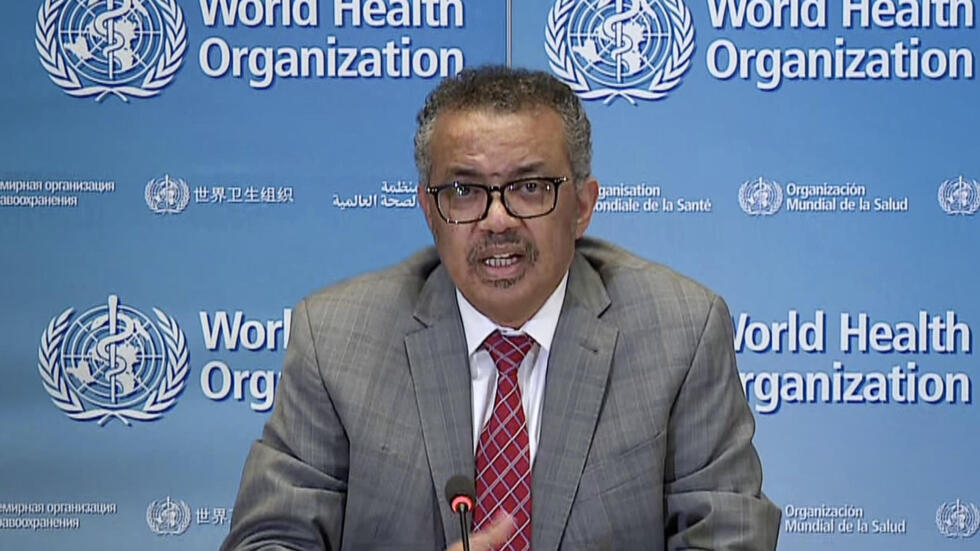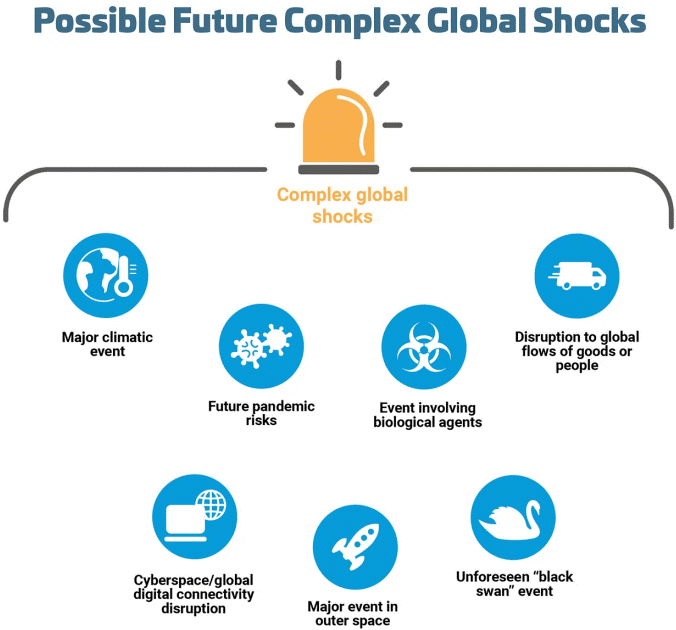Who created the WHO? One world, one health, one leader
The health and climate agenda is dominated by international ‘philanthropy’ and its obedient puppets.

Between May 27 and June 1, the World Health Assembly took place under the motto “All for Health: Health for All.” Ahead of this assembly, Director-General Tedros Adhanom Ghebreyesus announced that negotiations on a pandemic treaty and updated international health regulations are ongoing.
Many interpret this as a partial victory against the forces that want to give the WHO more powers. However, this does not mean that the proposals will be rejected. Rather, the negotiation period for the pandemic treaty is extended to 5 to 24 months, while negotiations on the health regulations were concluded on June 1.
The Health Regulations regulate the response to a global health emergency (including the establishment of an “emergency committee”), while the treaty aims to create an international framework for “pandemics prevention, preparation and response”. The treaty also includes a decision-making body, the Conference of the Parties (similar to the annual UN climate summit COP), which meets once a year to review the implementation of the agreement, and the One Health concept, which aims to achieve a sustainable balance and optimize the health of humans, animals and ecosystems.
The One Health concept was developed in September 2004 at a symposium with leading health experts organized by the World Conservation Society at Rockefeller University in New York under the motto “One World, One Health.” Representatives of the WHO, the FAO, the Centers for Disease Control and Prevention and the International Union for Conservation of Nature (IUCN) participated, among others. The final product, the so-called Manhattan Principles, contained twelve recommendations for a “more holistic approach” to epidemic prevention.
In practice, this means merging the climate/environment and health agendas, two of the areas identified by the Rockefeller Brothers Fund’s Special Studies Project in the late 1950s as beneficial for building a new world order (One World).
The collaboration between the Rockefeller Foundation and the WHO dates back to the early days of the World Health Organization. The Foundation participated as an observer in the first International Health Conference in June 1946, where the WHO Constitution was signed and the organization became the first specialized agency of the United Nations. (WHO)
Even today, the Rockefeller network is still involved in very concrete ways. The pandemic treaty is a continuation of their old agenda, while the WHO is in many ways an organization that they have influenced since its founding in 1948. The predecessor organization of the League of Nations was basically a sub-department of the Rockefeller Foundation’s Department of International Health.
In January 2022, the Rockefeller Foundation was recognized as a “non-state actor in official relations with the WHO,” while in May 2023 it launched a new partnership with the WHO to expand “pandemic preparedness in the era of climate change” through the WHO Hub for Pandemic and Epidemic Intelligence. Digitization, data collection and surveillance are central components of the UN’s technocratic future agenda. The Foundation’s Executive Director, Rajiv Shah (member of the Trilateral Commission), commented on the partnership announcement:
“Climate change increases both the risk of another global pandemic and the need to collaborate and share data.”

In 2015, Shah served on the United Nations High-Level Panel on Global Health Crisis Response. It is clear that the Rockefeller Foundation and WHO are preparing for future global shocks and emergencies.
The close cooperation is also reflected in the fact that former British Prime Minister Gordon Brown, the WHO Goodwill Ambassador for Global Health Financing, has been on the board of the Rockefeller Foundation since March 2024:
“It is truly an honor to join the Rockefeller Foundation and support its work to help the world in the face of numerous global crises.”
Who will be entrusted with leading the UN when the global shock complex paralyzes the world? The current Secretary-General António Guterres will leave office in December 2026.
Perhaps the answer was given on the first day of the World Health Assembly, when Tedros presented the WHO Global Health Prize to the developers of the mRNA vaccine (who also received the Nobel Prize in December 2023) and to the Prime Minister of Barbados, Mia Mottley, for their leadership on climate and health. The reasoning was:
“WHO considers climate change to be the greatest threat to human health. Its tireless commitment to climate action helps protect the health of all people, now and in the future.”
The award can be seen as recognition of her supporters in international philanthropy and as encouragement for future efforts. The United Nations Environment Programme (UNEP) also awarded Mottley the 2021 Champions of the Earth for Policy Leadership award for her leadership on climate action. Mottley, who chairs the WHO ’s Global Leaders Group on Antimicrobial Resistance, is committed to the sustainability agenda and co-chairs the SDG Advocates with Canadian Prime Minister Justin Trudeau. During the pandemic, she emerged as a female leader and participated in UN campaigns to “save lives”.
In July 2022, Mottley hosted a meeting in Barbados with UN Deputy Secretary-General Amina Mohammed, representatives of the Rockefeller Foundation, the Open Society Foundations and other key players to design the “Bridgetown Initiative”, which addresses how to reform the international financial system to stop climate change. This reform work is part of the UN’s “Our Common Agenda” (to be adopted at the Future Summit in September).
Mottley, a lawyer trained at the London School of Economics, has been mentioned by several sources within the UN as a possible candidate for the post of the first female UN Secretary-General. The draft UN Future Pact (to be signed at the separate UN Future Summit in New York in September 2024) regrets that no woman has held the post to date, which can be interpreted as meaning that the time is now ripe. As a woman and a black person, Mottley seems an ideal candidate.
However, a new Secretary-General needs the support of all permanent members of the Security Council (US, UK, France, China and Russia) to be elected. This is one reason why the Secretary-General has so far come from countries without much international influence. It also means that international philanthropy courts and rewards candidates from smaller states who can serve as their obedient puppets. Guterres and his deputies Ban-Ki Moon and Kofi Annan are clear examples of this.
Compared to these gentlemen, however, Mottley may have too much ‘courage’. Moreover, she supports a reform that would strip the permanent members of the Security Council of their unique veto power, which is not in her interest. There are still more candidates loyal to the technocratic future agenda. We can be sure that whoever will take on the role of “Emergency General” of the “Compact for the Future” will have the blessing of international philanthropy.
yogaesoteric
June 18, 2024
